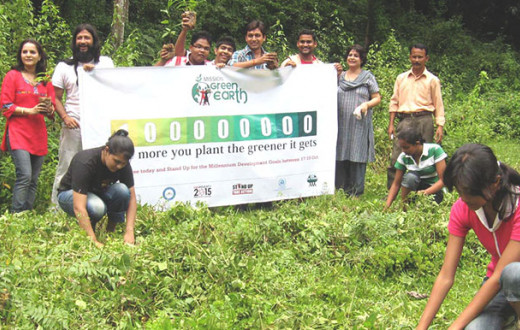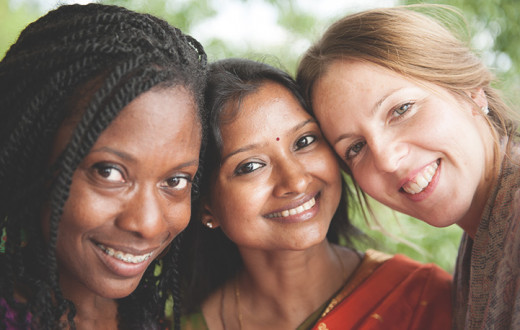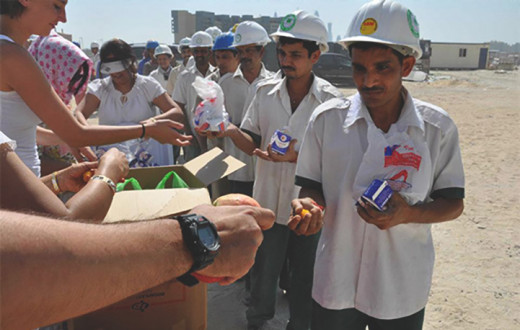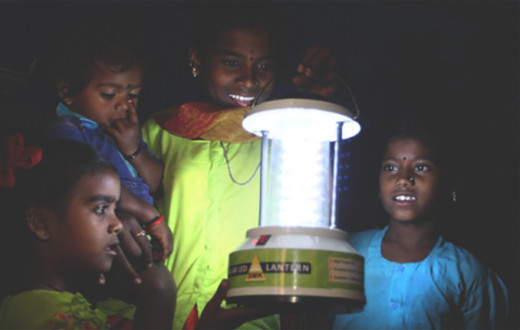“Åndelighet bør komme inn i politikken," ble Gurudev Sri Sri Ravi Shankar's råd til indiske sivil luftfart Minister Praful Patel under et nasjonalt TV dialog. Og han fortsatte med å fortelle statsråden, "Politikk handler i hovedsak om omsorg for mennesker og deres velferd. Hvis alle forsto dette svært formål av politikk, vil landet få en masse. "Gjennom årene, har Gurudev arbeidet for å få åndelige verdier til politikk, spesielt i India.
"Vi må åndeliggjøre politikk, sosial virksomhet og sekularisere religionen. Blottet for åndelighet, politikk raser korrupsjon, sier han.
Gurudev reiser verden rundt for å samhandle med politiske ledere og innprente dem til å integrere åndelighet og deres politiske filosofier. Erkjennelsen av hans bidrag i utformingen av en ny politisk orden, har parlamenter over hele verden invitert Gurudev å ta sine lovgivere. Han har adressert parlamentene i Sør-Afrika, Frankrike (Strasbourg), Tyskland (Deutscher Bundestag), Skottland, Brasil og Argentina dessuten hyppige opptredener i det europeiske parlamentet. På disse fora, har han vært bevegelig behovet for å bringe et helhetlig perspektiv på nasjonale beslutningsprosessen.
Fra menneskelige verdier til terrorisme, til konfliktløsning, han ikke bare høydepunkter globale saker av bekymring, men også med forslag for å løse lokale politiske ligninger. Han arbeider også for å bygge større konsensus i konfliktfylte land for å hjelpe den politiske klassen kommer sammen for å finne løsninger. For eksempel, i Sri Lanka, jobbet Gurudev med politiske ledere fra den herskende Sri Lanka Freedom Party, opposisjonen United National Party og mindre partier som Tamil National Alliance. Den tamilske trykk publiserer ofte Gurudev's syn på fred. "

I 2007 inviterte den irakiske statsminister Nouri al-Maliki Gurudev en fred misjon til urolige landet. Bli den første indiske åndelige lederen til å besøke landet, diskuterte Gurudev, og statsministeren måter å gjenoppbygge det krigsherjede Irak.
Gurudev også møtt med over 80 shia-og stammeledere i Bagdad, oppfordret dem til å avslutte alle drapene: "Gi ikke-vold filosofi Mahatma Gandhi en rettssak, gi fred en sjanse," Gurudev sa. Touhed av Gurudev's humanitære initiativer i Irak, sa den sjiamuslimske lederen Ayatollah Mohammad Ali Aqaadi: "Vi tar gjerne imot delegasjonen med åpne armer og hjerter. Vi ønsker deg velkommen som vår bror og vi er klare til å arbeide hånd i hånd med deg. "
Gurudev også møtt med over 80 shia-og stammeledere i Bagdad, oppfordret dem til å avslutte alle drapene: "Gi ikke-vold filosofi Mahatma Gandhi en rettssak, gi fred en sjanse," Gurudev sa. Touhed av Gurudev's humanitære initiativer i Irak, sa den sjiamuslimske lederen Ayatollah Mohammad Ali Aqaadi: "Vi tar gjerne imot delegasjonen med åpne armer og hjerter. Vi ønsker deg velkommen som vår bror og vi er klare til å arbeide hånd i hånd med deg. "
I 2007 avduket Gurudev en foreslått FNs Human Values på John F Kennedy Center for Performing Arts i Washington, DC i nærvær av en galakse av amerikanske politikere, inkludert senior Senators og representanter.
Takket være hans proaktiv agenda, er Gurudevden eneste åndelige lederen fra India som har en tilhengerskare blant den politiske klassen i Pakistan. Hans visdom er æret av den politiske klassen i Nepal og Malaysia i tillegg.
It is even more important to make the political class realize that politics is not about enjoying a position, but ensuring the welfare of people when the polity is polarized on ideological lines.
“When political parties are stuck to their party ideology, they start placing the party interest above the interest of the nation. We cannot afford to have such a divided polity in a multi-party democracy like India,” says Gurudev.
Accordingly, Gurudev has been engaged in efforts to build political consensus in India based on national interest.
Highlights
- Builds larger consensus in conflict-ridden countries to help the political class find solutions
- Welfare of people when the polity is polarized on ideological lines
For example, when the Indian polity was widely divided and the government’s survival was at stake over the issue of the civilian Nuclear deal with the United States, Gurudev made a passionate appeal to all political parties to arrive at a national consensus keeping the best interests of the nation in mind. “Political parties need to display magnanimity and support the initiatives which are in national interest irrespective of the party that brings it forward. India has always had a tradition of the government and opposition coming together in national interest whenever a crisis befalls the nation,” he counselled politicians.

A spiritual guru with no political or ideological affiliations, the masses see Gurudev as the balancing force between the Left and Right of the Indian polity. He offers the middle path on issues where the country is being polarized along political lines
Amidst threats from misguided Maoists and Jihadi elements, Gurudev is seen as a universally accepted ambassador of peace. The Hindus, Muslims, Christians, Dalits and Sikhs alike have faith and confidence in him. He always denounces both Left-wing extremism and Right-wing fanaticism in unambiguous terms and calls for dialogue among people of different ideologies to create an atmosphere for national progress.
Highlights
- Calls for dialogue among people of different ideologies to create an atmosphere for national progress
- Educates the political class about short sightedness in policy making
- Helps governments to correct policies and resolve situations that could turn into political waterloos
- Pre-empts politically motivated division of people
Repeatedly, Gurudev has shown that leaders from all sides of the political divide can be brought together. He hosts many public events where politicians from all denominations come together. When Gurudev hosted the Silver Jubilee celebrations of The Art of Living in February 2006 in Bangalore, India, 750 politicians of all hues attended the celebrations.
Gurudev also plays a proactive role in educating the political class about short sightedness in policymaking.
He always speaks out strongly against what he calls “succumbing to vote bank politics”. When India literally burned over providing caste-based reservations to students, he opposed the move saying it will divide the nation in the long run and hurt the self-esteem of people.
He extends help to governments to correct policies and resolve situations that are turning into political waterloos. For example, when the Maharashtra government threw up its hands in its efforts to stop suicides by farmers, Gurudev stepped in with a multi-pronged initiative that effectively ended the crisis.
Be it bringing Maoists rebels to talks or playing the role of a peace ambassador in communal conflicts, Gurudev is always quick to rush to action to pre-empt politically motivated division of people. That was how he recently defused two volatile conflicts in India. In August, he played a major role in finding an amicable solution to the Amarnath land imbroglio that triggered large-scale violence and protests throughout Jammu and Kashmir.

Similarly, in June, he worked to defuse the violence and tension that had engulfed the Indian state of Rajasthan following an agitation by the Gujjar community demanding recognition as a backward community (scheduled tribe) and reservation benefits. The conflict had hit a political deadlock as the Gujjar community was politically too influential to be ignored. At the same time, giving in to their demands would have meant antagonizing other communities. Caught in the jam the ruling party of the state approached Gurudev to help find a negotiated political settlement.
It is not just conflict resolution. Gurudev's initiatives go deeper and aim to pre-empt conflict and political exploitation. The Dalits in India continue to be a politically exploited group. Seen as a large vote-bank, political parties have taken recourse to the short-term gain of ensuring that they remain disintegrated from the mainstream. Over the years, Gurudev is constantly engaged in helping the community break free from the shackles of social and political exploitation.
In 2007, he hosted a landmark conference in New Delhi as an endeavour to end social discrimination based on one’s birth. Commenting on the initiative, a leading English daily wrote in its editorial pages, “The inescapable fact is that such a reformist intervention is the need of the times, without which public service would remain a chimera and self-service the only touchstone in our political life. Absence of such intervention would mean that Indian society will not develop as a democratic society, but will remain a prisoner of the past.”
Highlights
- Warns against politics of hate practiced by some parties
- Impresses upon politicians to work together towards progress for the nation
- Motivates good people to enter the political arena
- Increases public awareness of their political rights, especially among the underprivileged sections
We often tend to put politics and dishonesty on the same platform. Because of this good, principled people are not motivated to join politics or participate in the political process. This has allowed the political system to rot under a few corrupt politicians. This is another area where Gurudevplays an active role by motivating good people to enter the political arena. Often in his public interactions, particularly with the youth, he voices his opinion that young politicians should come forward to take the country ahead. “Like in Mahatma Gandhi’s time, politicians were respected. When a politician comes to a village, he used to be respected as if a saint has come. We need to bring back that value system,” is his often-repeated refrain.
One thing that really concerns Gurudevis the politics of hate practiced by some parties. “We have to end the politics of hate and mistrust. True politics is to care for all people, regardless of differences in caste, religion, ideology, or language. Often political parties come together because of common enemies rather than common goals. They unite on the basis of hatred and fear,” he rues. He engages political leaders to impress upon them to work together towards progress for the nation.“Much time is wasted in mudslinging and in undoing the work of the others. India will shine truly when political parties complement and honour one another,” he wrote in a signed article in a leading national daily.
In the same article he urged opposing parties to work towards common goals: to alleviate the suffering of the poor, to make the rich charitable, the innocent less vulnerable and the educated incorruptible.
Gurudev has also undertaken several initiatives to make people aware of their political rights, mainly the underprivileged sections who are often politically exploited. Through its public programs, The Art of Living educates people on the importance of exercising one’s political rights. “Come and cast your vote. Do not vote for people who bribe others for votes. Voting to elect the right candidate is our national duty,” Gurudev said while addressing a recent drive to encourage people to participate in the country’s electoral process.
Highlights
- Promotes a prejudice-free political system
- Encourages politicians to practice stress-elimination & relaxation techniques for better governance
Being a revered spiritual leader with a mass appeal, the masses take cognizance of what Gurudev stands for and are ready to place him ahead of politicians.
Going by his following which cuts across the political divide, it will be no exaggeration to say that after Mahatma Gandhi, Gurudev seems to be the only leader who has the ear of the common man, the ruling class, decision-makers and opinion makers alike. Not surprisingly, politicians from different parties come to him from time to time seeking his advice.
Taking a holistic view of the process of political reforms, Gurudev has been pushing for a prejudice-free political system. “Consensus can emerge only when politicians learn to drop prejudices. Prejudice against religion, caste, gender… is what is preventing people and parties to come together. To be able to drop prejudices, we need to teach politicians to widen their sense of belongingness. This can happen only when they are free from stress,” he says. Guided by this, The Art of Living has taken its stress-elimination programs to many politicians in India. Gurudev himself has addressed many lawmakers and taught them relaxation techniques. Addressing the Senate of Argentina in May 2008, he said, “Decision-makers need to be free from stress to come up with great ideas and work well.”
The goal of politics is to bring good governance and increase material comfort of people. The aim of spirituality is to boost morality and human values. “Both need to go hand in hand; if one is the eye, the other is the ear. Cross the threshold of politics and see the Divine,” are his words of wisdom to politicians.









